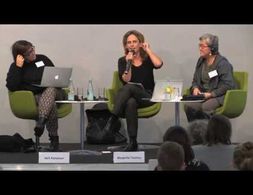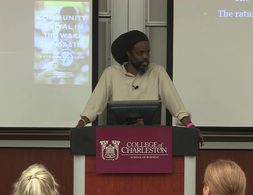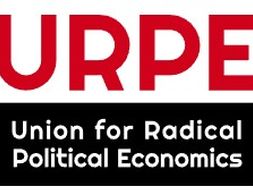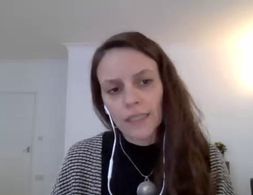✕
421 results
This statistics and data analysis course will introduce you to the essential notions of probability and statistics We will cover techniques in modern data analysis estimation regression and econometrics prediction experimental design randomized control trials and A B testing machine learning and data visualization We will illustrate these concepts with …
Mainstream inflation theories in economics do little to explain the recent acceleration in price increases. The associated economic policy recommendations further increase the misery of low-income groups.
The global financial crisis (GFC) led to increasing distrust in economic research and the economics profession, in the process of which the current state of economics and economic education in particular were heavily criticized. Against this background we conducted a study with undergraduate students of economics in order to capture their view of economic education.
The guides provide links to texts by Marx and Engels and present possible questions to discuss in study groups. The texts include Capial Volumes I – III, Economic & Philosophical Manuscripts or “Value, Price and Profit”.
Even if men were perceived as the main protagonists of the Greek crisis, the crisis had a deep impact on disadvantaged groups, in particular migrant women working as domestic labourers. The debate presents the particular impact on migrant women of the downturn and furthermore discusses how migrant struggles and other emancipatory movements impacted the politics of crisis. The first minutes of the video are in German, but the moderator switches to English.
Does Karl Polanyi's work “The Great Transformation” serve to analyse the current multiple crisis and social movements? Nancy Fraser revises Polanyi's concept of a double movement to capture social forces in the aftermath of the economic crisis of the 1930s – on the one side marketization and on the other hand social protection. Fraser proposes to talk about a triple movement and to account for emancipatory struggles. In the lecture, she discusses interactions as well as conflicts between those three forces, in particular conflicting aims of social protection. The lecture presents the content of her paper “A TRIPLE MOVEMENT? Parsing the Politics of Crisis after Polanyi“ in the New Left Review (2013).
The outbreak of COVID-19 has substantially accelerated the digitalization of the economy. Yet, this unprecedented growth of digital technology brought novel challenges to the labour market. Rise in income inequalities and precarious working conditions or polarization of jobs. In this essay, we try to assess what tools to use to counter these trends.
In this essay the authors take a look at how welfare could be provided in a degrowth society.
The Philosophy of Economics Foundational Text provides a systematic and well-structured overview over the field of philosophy of economics.
Is or has economics ever been the imperial social science? Could or should it ever be so? These are the central concerns of this book. It involves a critical reflection on the process of how economics became the way it is, in terms of a narrow and intolerant orthodoxy, that has, nonetheless, increasingly directed its attention to appropriating the subject matter of other social sciences through the process termed "economics imperialism".
This book highlights the political economy of wealth and income inequality in Latin America. The author segments his analysis to separately evaluate the economic, social, and political costs of inequality building on country case studies. It draws well-contextualized lessons from the Latin American experience that is important to consider for other regional contexts, especially for social policies of nations within the 'Middle Income Trap'.
This course will introduce key concepts, theories and methods from socioeconomics. The first part of the course, will deal with the main economic actors and how their interactions are governed. Markets are seen as sets of social institutions. Institutions shape how consumers, firms and other economic actors behave. While it is difficult to understand how novelty emerges, we can study the conditions that are conducive to innovation. We will review how economic performance, social progress and human wellbeing are measured and what progress has been made. In the second part of the course, we will study a specific macroeconomic model that accounts for biophysical boundaries and inequality.
For many social critics "globalization" is a signpost of “late-capitalism” with the rise of multinational corporations, mass consumption and the multidirectional flows of capital, labor, media, communication, ideologies and social movements across national borders. Feminist analyses of globalization and the gendered and sexualized permutations of these phenomena offer a critical stance for theorizing these processes, and for studying their complex articulations across time and space.
This volume explores the relationship between law and economics principles and the promotion of social justice. By social justice, we mean a vision of society that embraces more than traditional economic efficiency. Such a vision might include, for example, a reduction of subordination and discrimination based on race, religion, gender, sexual orientation, age, disability or class.
As a response to ongoing economic, social and environmental crises, many private actors have enlarged their definition of 'value' to include environmental and social elements. Such practices, however, appear incompatible with the current epistemological structure of academic financial discourse.
Marxian Political Economy focuses on the exploitation of labour by capital. The economy is not conceived as consisting of neutral transactions for exchange and cooperation, but instead as having developed historically out of asymmetric distributions of power, ideology and social conflicts.
Recovery from the Covid-19 crisis provides a chance to implement economic measures that are also beneficial from environmental and social perspectives. While ‘green’ recovery packages are crucial to support economies tracking a low-carbon transition in the short-term, green measures such as carbon pricing are also key to improving welfare in the long-term. This commentary specifies the need for carbon pricing, outlines its implications for our everyday lives, and explains how it works alongside value-based change in the context of climate action and societal well-being.
In this talk, Virgil Henry Storr, a Research Associate Professor of Economics in the Department of Economics at George Mason University, talks about his research into to post-disaster recovery and the role that social entrepreneurship plays in rebuilding the communities and social networks that get disrupted, or entirely eliminated.
In this classic work of economic history and social theory, Karl Polanyi analyzes the economic and social changes brought about by the "great transformation" of the Industrial Revolution.
In this overview paper, Laura Porak reviews the history of industrial policy in the European Union before the background of a Cultural Political Economy approach.
Founded in 1968, The Union for Radical Political Economics (URPE) is an interdisciplinary membership organization of academics and of activists. Its mission is to promote the study, development and application of radical political economic analysis to social problems. Concretely, this involves a continuing critique of both the capitalist system, and of all forms of exploitation and oppression. URPE’s mission also includes, coming out of this critique, helping to construct a progressive social policy, and a human-centered radical alternative to capitalism.
The podcast exposes the concept and principles of co-operatives and the three main types of co-operatives: the consumer, credit and farmers buying and selling co-operatives. Furthermore, the history of the co-operative movement is presented. The authors draw the line from co-operatives to "degrowth" by arguing that these organisations discourage profit maximisation due to their ownership structure, their social purpose and their primacy of people over capital. The value of the members' co-operative share does not increase with the growth of a co-operative and it can not be used for speculation. Finally, the authors give examples for current co-operatives which empower (local) communities fostering social justice and environmentalism.
Understanding gender inequality is possible only when looking at the intersections between race and class inequalities. The health crisis is no different: Stevano takes a feminist and social reproductive perspective, from unpaid household work to social infrastructure and services.
Steven G. Medema is a Research Professor at Duke University. His research focuses on the History of Economic Thought, having published extensively on the issue of social costs of production (conceptualized as externalities in neoclassical economics). In this recorded seminar, he exposes his working paper on the history of the concept of externalities in economic literature, starting from Pigou’s “The Economics of Welfare” (1920), where Pigou makes the case for governmental intervention in the market where there is a divergence between private and social costs or benefits of a productive activity. T
The 2007–08 credit crisis and the long recession that followed brutally exposed the economic and social costs of financialization. Understanding what lay behind these events, the rise of “fictitious capital” and its opaque logic, is crucial to grasping the social and political conditions under which we live. Yet, for most people, the operations of the financial system remain shrouded in mystery.
Feminist economics focuses on the interdependencies of gender relations and the economy. Care work and the partly non-market mediated reproduction sphere are particularly emphasised by feminist economics.
In this essay the authors argue for a wider concept of care work that includes community building, civic engagement and environmental activism. On the basis of the case of Cargonomia, a grassroot initiative in Budapest, they show that such a wider concept of care work could allow for different narratives that promote sustainable lifestyles with a milder environmental and social impact on the planet and its communities.
This article, looks at the complex interaction between an urban economy and the vegetation within that urban area. In summary, numerous studies have found a positive link between increased vegetation and social as well as personal health. It makes a case for increasing urban vegetation as a way to benefit local economies.
How can we establish new institutions and practices in order to use fare-free public transport as a beacon for sustainable mobility and a low-carbon lifestyle? The author of this essay elaborates on how practice theory and institutional economics can help to answer this question.
Complexity economics focuses on interactions and interdependencies between individuals and structures in economic systems. Those are systems of organised complexity. High importance is given to the analysis of networks.
The general idea of a Job Guarantee (JG) is that the government offers employment to everybody ready, willing and able to work for a living wage in the last instance as an Employer of Last Resort. The concept tackles societal needs that are not satisfied by market forces and the systemic characteristic of unemployment in capitalist societies. Being a central part of the Modern Monetary Theory (MMT), attention for the JG concept rose in recent years.
After completing the module, participants should have knowledge and understanding about the theory of Critical Political Economy and its basic methods. They should be able to apply central concepts to analyse critical questions regarding the embeddedness of economic relations within broader social, political and ecological relations.
We use cookies on our website. Click on Accept to help us to make Exploring Economics constantly better!






























